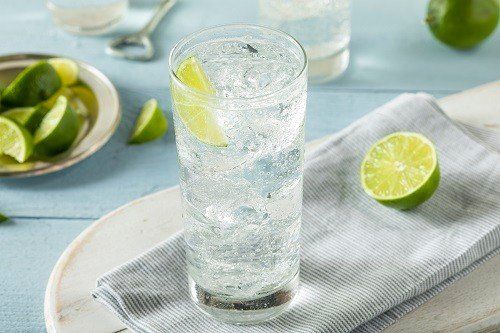Will Sparkling Water Harm My Teeth?
With more people becoming aware of the negative effects of over-sweetened sodas and similar drinks, including tooth erosion and cavities, many of these same people have been moving toward sugar-free options, such as sparkling water. According to a recent USA Today report, over 570 million gallons of sparkling water are sold in a given year in the United States. This drink is often assumed to be the healthier option, but there are some suggestions sparkling water isn’t as great for your teeth as it might seem. If you’re a sparkling water drinker, then here are a few things you should know about this popular beverage.
Sodas and the Teeth
Regarding sugary sodas, they cause two key problems for your teeth—they’re packed with sugar, which may result in cavities and tooth decay, and they’re high in acidity, per the American Dental Association. Acidic beverages and foods like sodas are much more likely to add to erosion in the teeth than nonacidic beverages and foods. Due to the negative effects sodas have on teeth, the main recommendation from the ADA is to choose another beverage. Among beverages that are ADA-recommended are milk, water, and unsweet sparkling water.
How Sparkling Water Affects the Teeth
While sparkling water has no sugar in it, it is a carbonated drink, and it's that carbonation that worries a few people. There have been several studies examining acidity within various beverages, such as sparkling water, and one published by the ADA measured pH levels in roughly 400 beverages, including sparkling waters, sweetened sodas, juices, sports drinks, and teas.
The researchers running the study classified the drinks’ erosive capabilities based on pH levels. Drinks with pH’s below 3.0 were deemed "extremely erosive," pH’s between 3.0 to 3.99 were deemed "erosive," and pH’s above 4.0 were considered "minimally erosive." Per U.S. News & World Report , most sports drinks rated below 3.0 while some sparkling waters were above 4.0, making them "minimally erosive."
Ada McVean, a researcher with McGill University, ran a comparable study. Rather than testing a wider range of drinks, she focused on the pH levels of nine specific sparkling water brands. The drinks were tested at both room and refrigerator temperature in addition to decarbonated and carbonated forms. In every test, the sparkling waters had pH levels above 4.0, with the level tending to rise whenever decarbonated and at room temp, suggesting sparkling water becomes more erosive to teeth in the form you're more likely to consume it—bubbly and cold.
To answer the question regarding sparkling water’s effects on the teeth, it’s less erosive when compared to other drinks. More importantly, as pointed out by the ADA, it has similar effects on enamel as non-carbonated waters. To keep the teeth as strong as possible, you can consider swapping out sugary drinks for a sparkling water, but avoid replacing fluoridated, regular water with a sparkling water.
If you need to visit the dentist but are avoiding doing so because of the high cost of dental care, consider using our NH supplemental dental insurance planthat can save you as much as 20 percent off your dental bills. For more information about this plan, click here.











